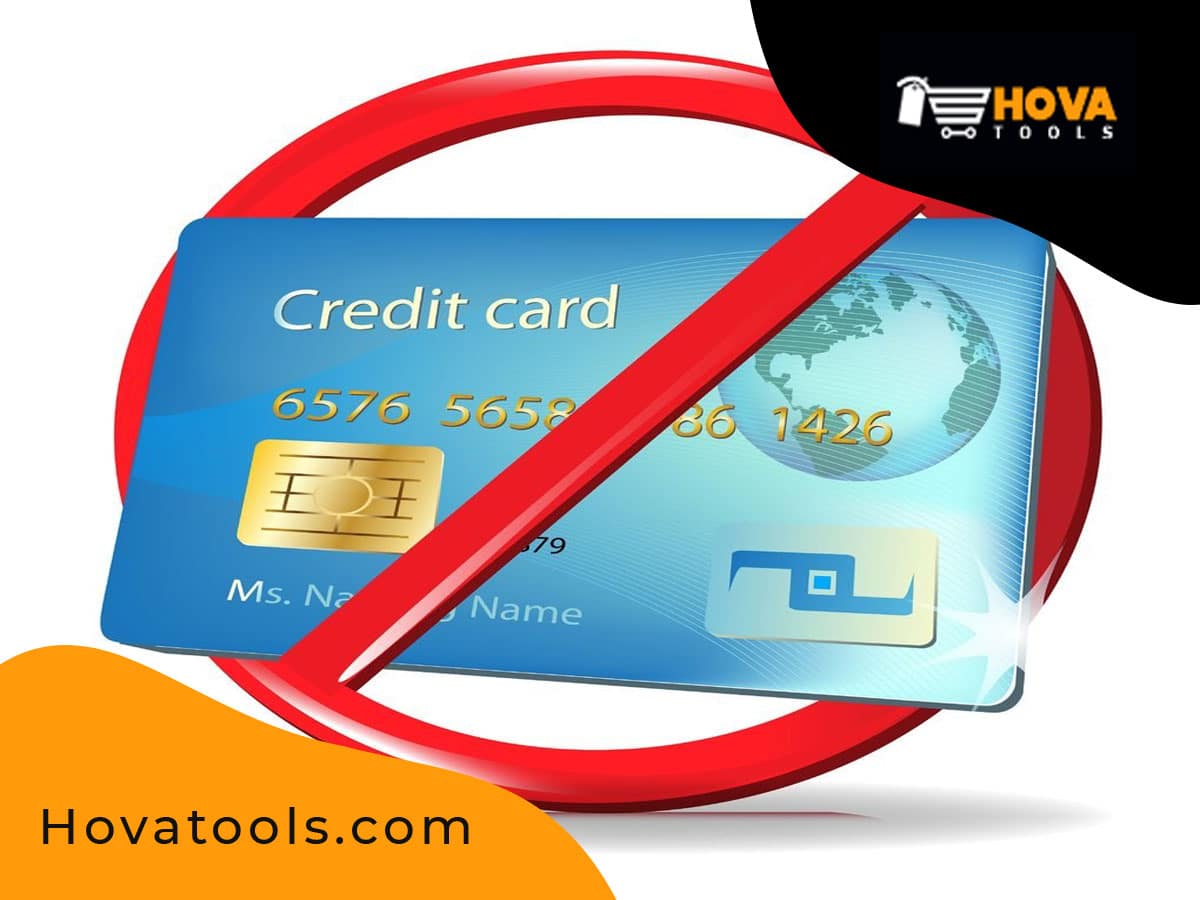7 reasons your credit card gets blocked, Plus: 7 tips to Handle a Credit Card Block
Introduction
Having your credit card blocked can be a frustrating experience that leaves you feeling stranded and helpless. Whether you’re trying to make an important purchase or simply need to pay for everyday expenses, a blocked credit card can disrupt your financial plans. In this article, we will delve into the 7 reasons why your credit card may get blocked, as well as provide you with 7 valuable tips for handling such situations effectively. So, let’s explore the common causes behind blocked credit cards and equip you with the knowledge to tackle these issues head-on.
7 Reasons Your Credit Card Gets Blocked
1. Insufficient Funds
Have you ever tried to make a purchase with your credit card only to find out it’s blocked due to insufficient funds? This is a common reason for card blocks. Credit cards have a predetermined credit limit, and if you exceed that limit or have insufficient funds in your linked account, your card may get blocked. It’s crucial to keep track of your spending and ensure you have sufficient funds available before making a purchase.
2. Suspicious Activity
Banks and credit card issuers have robust fraud detection systems in place to protect their customers from unauthorized transactions. If they notice any suspicious activity on your credit card, such as a sudden surge in spending or transactions from unfamiliar locations, they may block your card as a precautionary measure. While this can be inconvenient, it is done to safeguard your financial interests.
3. Late Payments or Defaulting
If you consistently miss your credit card payments or default on them altogether, it can lead to your card being blocked. Late payments and defaults indicate financial instability and raise concerns for credit card issuers. To avoid this, make it a priority to pay your credit card bills on time and in full. Responsible credit card usage is key to maintaining a good credit score and preventing blocks.
4. Identity Verification Issues
When you apply for a credit card or update your personal information, the credit card issuer may require additional verification. Failure to provide the necessary documents or incorrect information can lead to a block on your card. It’s essential to ensure your personal information is accurate and up to date to avoid any unnecessary hurdles.
5. Expiry or Card Replacement
Credit cards have an expiration date, typically printed on the front of the card. If you continue using an expired credit card or fail to activate a replacement card, your transactions may be declined or your card may be blocked. Stay vigilant and keep track of your card’s expiration date to avoid any disruptions in your spending.
6. International Travel and Usage
Using your credit card in a different country or making international transactions can trigger a block. Credit card issuers often flag international transactions as potential fraud due to the increased risk associated with unfamiliar locations. To prevent a block, inform your credit card company about your travel plans in advance and provide them with the necessary details.
7. Technical Glitches or System Maintenance
Sometimes, credit card blocks can occur due to technical glitches or system maintenance by the credit card issuer. While these instances are rare, they can happen and result in temporary blocks on your card. In such cases, reaching out to your credit card company’s customer service will help you resolve the issue swiftly.
7 Tips for Handling a Blocked Credit Card
1. Contact Your Credit Card Issuer
When you encounter a blocked credit card, the first step is to contact your credit card issuer’s customer service helpline. They can provide you with specific details regarding the block and guide you through the resolution process. Be prepared to provide them with any requested information to expedite the resolution.
2. Verify and Update Your Information
If your card is blocked due to identity verification issues, ensure that your personal information is accurate and up to date. Gather any required documents and promptly provide them to your credit card issuer to clear any verification hurdles.
3. Clear Outstanding Dues
In the case of a block resulting from late payments or defaults, make immediate efforts to clear any outstanding dues. Paying off your credit card balance and adhering to the payment schedule will not only unblock your card but also prevent future blocks and maintain a healthy credit history.
4. Review Recent Transactions
If your card is blocked due to suspicious activity, carefully review your recent transactions. If you identify any unauthorized charges, report them to your credit card issuer immediately. They will investigate the matter and take necessary actions to protect your account.
5. Plan Ahead for Travel
Before embarking on international travel, inform your credit card issuer about your plans. Provide them with the necessary details, such as your travel dates and destinations, to prevent any blocks on your card during your trip. It’s also advisable to carry an alternative payment method, such as a backup credit card or cash, in case of any unforeseen circumstances.
6. Utilize Digital Banking Solutions
Many credit card issuers offer digital banking solutions that allow you to manage your credit card and resolve issues conveniently. Familiarize yourself with these tools, such as mobile apps and online account management, to quickly unblock your card or address any concerns.
7. Keep Emergency Contact Information Handy
In case of a blocked credit card, it’s crucial to have your credit card issuer’s emergency contact information readily available. Save their customer service helpline number in your phone or make a note of it in a secure place. This will enable you to reach out for assistance promptly.
Frequently Asked Questions (FAQs)
Q: How long does it take to unblock a credit card?
A: The time it takes to unblock a credit card can vary depending on the reason for the block and the efficiency of your credit card issuer’s resolution process. In some cases, the issue may be resolved within a few minutes, while in others, it could take a few days. Contact your credit card issuer’s customer service for an accurate estimate.
Q: Can I still use my credit card if it’s blocked?
A: No, you cannot use your credit card for transactions when it’s blocked. The block is placed to prevent any unauthorized or fraudulent activity on your account. You will need to follow the necessary steps to resolve the block and regain access to your credit card.
Q: Will a blocked credit card affect my credit score?
A: In most cases, a temporary block on your credit card will not directly impact your credit score. However, if the block is a result of late payments, defaults, or financial instability, it can have an indirect impact on your creditworthiness. It’s essential to address the underlying issues to maintain a good credit score.
Q: Can I avoid credit card blocks altogether?
A: While it may not be possible to completely avoid credit card blocks, you can minimize the chances by practicing responsible credit card usage. Pay your bills on time, stay within your credit limit, and promptly report any suspicious activity to your credit card issuer. Regularly reviewing your account and keeping your personal information up to date can also help prevent blocks.
Q: Are debit cards also prone to blocks?
A: Debit cards can also be subject to blocks, although the reasons may differ from credit cards. Insufficient funds, suspicious activity, and technical glitches can also lead to blocks on debit cards. However, the resolution process may vary, so it’s important to contact your bank’s customer service for assistance.
Q: What should I do if my credit card remains blocked even after following the steps?
A: If your credit card remains blocked despite following the recommended steps, it’s crucial to stay persistent and contact your credit card issuer’s customer service again. Provide them with all the necessary details and ask for a resolution. If needed, escalate the matter to a higher authority within the organization.
Conclusion
Encountering a blocked credit card can be a hassle, but by understanding the common reasons behind it and following the expert tips provided, you can effectively handle such situations. Remember to stay proactive in managing your credit card, keep your information updated, and maintain a responsible payment history. By doing so, you’ll minimize the chances of your credit card getting blocked and enjoy a smoother and more convenient financial experience.
Henceforth, WE WISH TO ANNOUNCE THAT OUR SERVICES ARE NOT AVAILABLE TO PEOPLE FROM NIGERIA AND INDIA. THESE ARE USELESS TIME WASTERS AND THIEVES TRYING TO BEG OR SCAM US OF OUR PRODUCTS. OUR SERVICES ARE NOT FREE AND PAYMENT IS UPFRONT
A LOT OF FOOLS FROM NIGERIA AND INDIA. on the off chance that YOU DON’T TRUST TO USE OUR SERVICES, DON’T CONTACT US AS WE HAVE NO FREE SERVICE
CONTACT US FOR PURCHASE/INQUIRIES, WE RESPOND ALMOST INSTANTLY
HI BUYERS, WE ARE A PROFESSIONAL CARDING AND HACKING TEAM. HOVATOOLS HAS BEEN AROUND SINCE THE TIME OF EVO MARKET, ALPHABAY, WALLSTREET MARKET AND MORE. WE REMAIN STRONG AND RELIABLE IN THE INDUSTRY, ALWAYS PROVIDING YOU WITH THE BEST QUALITY TOOLS TO HELP YOU MAKE MONEY AND MAXIMIZE PROFIT IN THE FRAUD GAME.
TO GET STARTED, YOU CAN VISIT OUR ONLINE SHOP/STORE TO BUY EVERYTHING YOU NEED TO START CASHING OUT. AT THE SHOP YOU GET Accounts & Bank Drops CVV & CARDS DUMPS PERSONAL INFORMATION & SCAN.
BANK HACKING SOFTWARE – WIRE/ACH DARKWEB MONEY TRANSFER HACKERS
Buy Fresh Credit Cards for Carding, BIN LIST Buy Bank Login, RDP, Buy Hacked Paypal accounts. Contact us to buy all tools and carding software. CLICK HERE TO VISIT OUR SHOP
Buy Socks 5, Email Leads, Buy Latest CC to Bitcoin Cashout Guide, Buy Hacked Zelle transfer , Western Union Money Transfer Hack, Buy Hacked Money Transfer service to your bank account.
Enroll for Paid private Carding Class.







